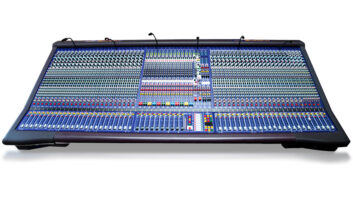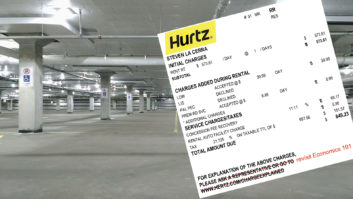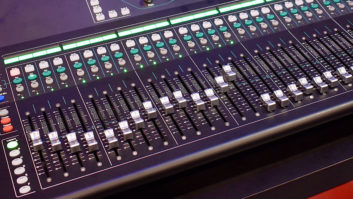My cousin Frank sent me a message and a link to an online article published last week that discussed the reorganization of the wireless spectrum and its effects on wireless microphone and instrument users. Frank doesn’t work in the audio industry, so the whole thing was news to him. “Will this be a PITA for you?” he asked. If only he knew… As someone who participates regularly in church services (he’s a Deacon), Frank and his parishioners would be concerned.
Audio pros have been over it ad nauseum: broadband wireless providers with deep pockets want the prime real estate of the 600 and 700 MHz bands for their own use, and the audio industry is a gnat on the FCC’s office wall. When presented with the opportunity to “sell” air rights to companies like Google or ATT for tens of billions of dollars (air rights that could be rescinded by the FCC in the future when someone else with deeper pockets comes along offering more money), the FCC jumps, and really doesn’t give a rat’s behind if they jump up and down on the graves of the audio guys, whether we’re working on tours, Broadway, sporting events or in houses of worship. We simply don’t have the resources to compete.
Read more Mix Blog Live: Sometimes the Show Doesn’t Go On.
What has become evident in the past few years is that the FCC’s reorganization is hurting small audio operators like that church with a few hundred parishioners who can barely keep the lights on or afford to fix the roof, let alone fork up a few grand for new wireless microphones. Wireless manufacturers have been more than gracious by creating trade-in programs, but they can only go so far. I can just see some knucklehead representing ATT walking in on a service and trying to shut it down because a minister is using an old wireless system in the 700 MHz band.
What’s really surprising to me is the contrast between how profound the FCC reorganization has been for our industry versus how under-the-radar (or perhaps “under the table”) it has been to the mainstream. But now, small theaters, schools and HOWs have to figure out how they will deal with the wireless gear they own, which may soon be illegal to use. I imagine that some folks will continue to use their outlawed RF gear until the spectrum becomes so crowded that their devices become unusable, and others will scrape together the cash to buy new systems. In some cases, that equipment may be better than what they owned; less fortunate users may have to migrate downstream to lower-priced RF systems inferior to what they previously owned.
Tremendous efforts by Shure, Sennheiser, Lectrosonics and Audio-Technica have helped get us some concessions from the FCC, but the FCC’s message clearly remains “find somewhere else to live.” My friends laughed at me a few years ago when I suggested a return to the VHF band—which is starting to look like a good idea. I’m confident that we will find somewhere else to live because the audio industry has great minds and engineers who will develop new technology that doesn’t occupy the same space as that desired by broadband providers.
I still say that the time will come when some stuffed-shirt politician’s RF mic will take a poo while they’re delivering a speech in front of thousands of people, and all of a sudden there will be an emergency of epic proportions…”How did we ever let this HAPPEN?” I hope I’m there to see it.







